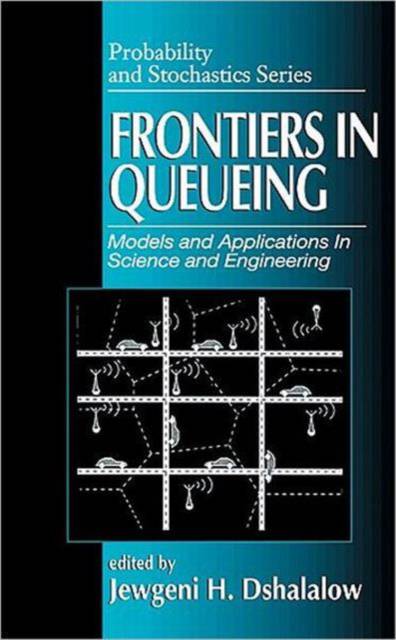
- Retrait gratuit dans votre magasin Club
- 7.000.000 titres dans notre catalogue
- Payer en toute sécurité
- Toujours un magasin près de chez vous
- Retrait gratuit dans votre magasin Club
- 7.000.0000 titres dans notre catalogue
- Payer en toute sécurité
- Toujours un magasin près de chez vous
175,95 €
+ 351 points
Description
Queueing systems and networks are being applied to many areas of technology today, including telecommunications, computers, satellite systems, and traffic processes. This timely book, written by 26 of the most respected and influential researchers in the field, provides an overview of fundamental queueing systems and networks as applied to these technologies. Frontiers in Queueing: Models and Applications in Science and Engineering was written with more of an engineering slant than its predecessor, Advances in Queueing: Theory, Methods, and Open Problems. The earlier book was primarily concerned with methods, and was more theoretically oriented. This new volume, meant to be a sequel to the first book, was written by scientists and queueing theorists whose expertise is in technology and engineering, allowing readers to answer questions regarding the technicalities of related methods from the earlier book. Each chapter in the book surveys the classes of queueing models and networks, or the applied methods in queueing, and is followed by a discussion of open problems and future research directions. The discussion of these future trends is especially important to novice researchers, students, and even their advisors, as it provides the perspectives of eminent scientists in each area, thus showing where research efforts should be focused. Frontiers in Queueing: Models and Applications in Science and Engineering also includes applications to vital areas of engineering and technology, specifically, telecommunications, computers and computer networks, satellite systems, traffic processes, and more applied methods such as simulation, statistics, and numerical methods. All researchers, from students to advanced professionals, can benefit from the sound advice and perspective of the contributors represented in this book.
Spécifications
Parties prenantes
- Auteur(s) :
- Editeur:
Contenu
- Nombre de pages :
- 480
- Langue:
- Anglais
- Collection :
- Tome:
- n° 7
Caractéristiques
- EAN:
- 9780849380761
- Date de parution :
- 21-01-97
- Format:
- Livre relié
- Format numérique:
- Genaaid
- Dimensions :
- 178 mm x 265 mm
- Poids :
- 1056 g

Les avis
Nous publions uniquement les avis qui respectent les conditions requises. Consultez nos conditions pour les avis.






